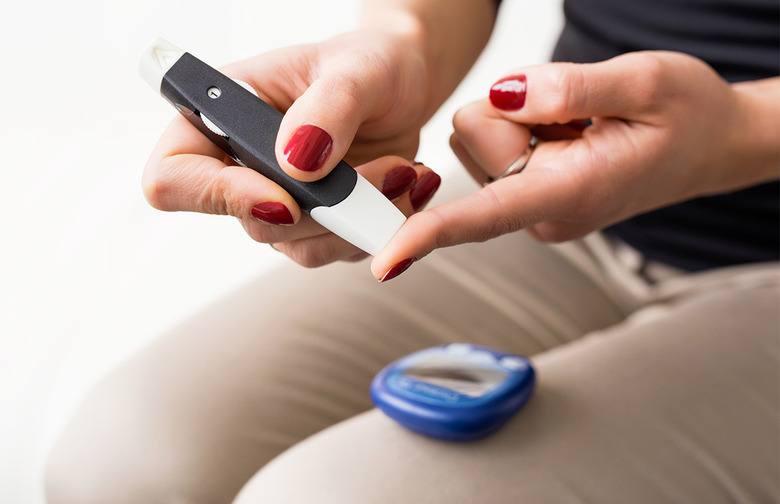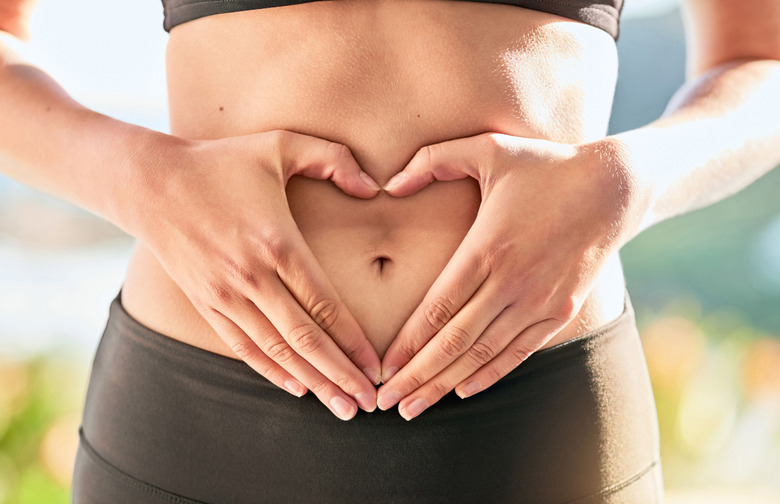20 Incredible Ways Happiness Affects Your Body Slideshow
A famous Irish proverb reads, "A good laugh and a long sleep are the best cures in the doctor's book." The proverb rings more true than anyone anticipated — because being happy really does have some impactful and incredible influences on your physical health.
We've all heard the incredible stories — claims that elderly patients can be cured of illness through familial visits, that people in comas have made it out after hearing the sound of laughter, and that your mom can actually live longer if you spend more time with her. They sound like urban legends, but there are aspects of them that ring true.
Happy people are the healthiest people. And it doesn't even take a huge life overhaul to feel the effects. Some of these health impacts can come from something as small as a smile. We bet you didn't even know a little dose of happiness could do so much for your body.
Lowers Blood Pressure
Blood pressure is often unpredictable, and a higher blood pressure can lead to weakening blood vessels, clogged arteries, and even brain damage. According to research conducted in 2005, simply taking the time to reflect on the positivity in your life can miraculously mitigate that risk by taking your blood pressure down a few notches.
Lowers Heart Rate
It might sound romantic to have your heart skip a beat, but a racing pulse is a sure sign of danger for your health. According to the American Heart Association, a rapid heartbeat is a common predecessor of a heart attack or other issue. What is regenerative to your health is a slow, steady beat — which, according to studies, can be regulated by feelings of happiness and an elevated mood.
Strengthens Your Immune System
This statistic is baffling. According to multiple studies, people who are happier get sick less often. These feelings of elation and satisfaction can literally stave off the cold and flu. How? It's simple — the happier you are, the more active your immune system is.
Speeds Recovery From Illness
If you do manage to get sick in the midst of your bliss, your happiness will help you recover faster. Positive emotions boost your immune response, meaning that antibodies and other immune reactions to a virus or bacteria will work faster and stronger to banish your sickness for good.
Combats Stress
This might seem self-explanatory — being happier means feeling less negative stress. But stress is an intensely physical thing. Everyone who is stressed releases the stress hormone, cortisol. Cortisol can do some serious damage to your body, in terms of blood pressure, lifespan, and disease risk. Some risk factors besides unhappiness that can spike your levels of cortisol include lack of sleep, malnutrition, excessive caffeine intake, and more.
Improves Perception of Your Own Health
There's a reason the adjectives "happy" and "healthy" are so frequently paired. Feeling happiness can make you feel symptoms of healthiness such as vivacity, focused attention span, fulfillment, and more. Those who reported feelings of happiness, in one study, also reported better levels of physical health, regardless of whether their health was actually any better or worse.
Improves Pain Resilience
There have been numerous studies that investigate the mystical impact of happiness on feelings of physical pain. But perhaps one of the most inspiring was a study conducted in 2005. Women with incurable, chronically painful diseases were asked to record their emotions alongside their perceived levels of pain. For women with happier, uplifted emotions, pain levels were reportedly lower. Their emotions helped heal them into their old age.
Lengthens Your Lifespan
At first, people were skeptical. But after dozens of studies were released that confirmed the idea, people became accustomed to the fact that happiness can literally make you live longer. The most famous study, conducted on a group of nuns, found that those who recorded greater feelings of happiness at a young age eventually went on to live longer lives. In a British study, happier people were 35 percent less likely to die over the span of five years. And, if you don't believe us yet, another study followed almost 7,000 people for nearly 30 years, finding that those who reported higher levels of satisfaction at the beginning of the trial were less likely to die overall.
Lowers Risk of Heart Disease
Reasons you should start seeing the cup as half full, not half empty: Your life may depend on it. According to one study, among older people, optimists had a 77 percent lower risk of heart disease than did pessimists. Looking at the bright side can literally prevent heart attacks.
Increases Affinity for Exercise
Happy people are more likely to be frequent exercisers — we know this logically, but also according to science. Happiness and contentment might inspire you to get outside, jump in the pool, or even hit the gym. And that exercise, as a result, has dozens of other health benefits.
Improves Sleep
Sleep quantity and quality has a huge impact on overall well-being. Apparently, this is also true the other way around. One study showed that on days where study participants reported feeling happier, they experienced a better night's sleep.
Decreases Inflammation
Many health-related complaints and aches can be traced back to inflammation. That's why anti-inflammatory foods are so beneficial — they prevent acne, improve digestion, and can help prevent disease. However, there are more ways than changing your diet to lower your inflammation levels. Happiness can help, too, according to a study conducted on middle-aged adults in Japan. The more positive their mood, the more positive their health outcomes.
Helps Heal Wounds Faster
Few breakthroughs in modern medicine have found a way to quicken the rate of wound healing in patients — but happiness somehow can. A study published in 2010 assessed the rates of healing of foot ulcers in diabetes patients and found that those who reported feeling happier and more fulfilled exhibited faster rates of healing.
Results in a Diet Higher in Fruits and Vegetables
If you're in a good mood, you might be inspired to eat more nutritious foods, according to an analysis of over 7,000 adults' habits. The study revealed that those who reported positive well-being were 47 percent more likely to consume fresh fruits and vegetables regularly. Conversely, consuming fruits and vegetables can make you a happier person as a result. It's a bright and uplifting cycle.
Lowers Risk of Diabetes
Since happiness can influence you to move more, eat more fruits and vegetables, and eat an overall healthful and balanced diet, these factors combined can have a forceful impact in the prevention of Type 2 diabetes. It might seem simple, but a smile can be one of the best things you can do to mitigate your risk.
Lowers Risk of Stroke
The third leading cause of death in the United States, strokes kill over 150,000 Americans each year. In one study, happiness and an overall sense of well-being decreased the likelihood of stroke by 26 percent.
Boosts Energy Levels
Laughter and smiling can work wonders to combat life-sucking emotions like stress and fatigue. Humor mitigates stress and boosts healthy cell activity — essentially, making you feel light, alive, and ready to enjoy life.
Improved Digestion
The happier you are, and the more you enjoy your meal, the more nutrients you're able to obtain from your food. Happiness has an impact on your adrenal glands, which have a hand in regulating your digestion.
Boosts Metabolism
According to a new study from the Scripps Research Institute, one of the hormones released from feelings of happiness can trigger fat-burning and effectively jump-start your metabolism.
Fights Aging
Smiling naturally lifts your face muscles and prevents wrinkles. On average, people who smile more look a whole three years younger than those who don't. Authentic smiles are contagious — so by simply spreading your smile to those around you, you're sprinkling youth and vivacity over your surroundings. Smile while eating one of these foods, and you'll prevent wrinkles even further.




















